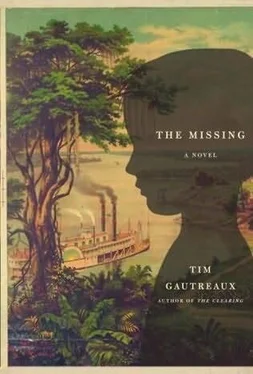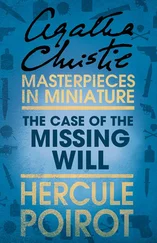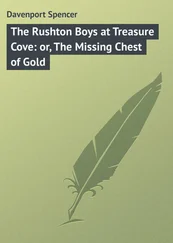“Everybody talks about everybody’s business? So if I tell you something, it’s like having a meeting with everyone else at once, right?”
Charlie ran a thumb along his scraper’s blade and looked at him. “This is goin’ somewhere?”
“I might as well say it now. I lost that job because of the child, and here I am, number one, to keep my lights on. And number two, the Wellers think I can help find their girl.”
“Is that how it is?”
“Spread the news.”
Charlie took two steps around a corner of the rail and stood over the paddlewheel, scraping and wincing away the peppering flakes. “ Something’s got to be done. Let’s hope you’re the something.”
***
A SUSURRATION began in one of the smokestacks as the boilers started to build steam pressure. The two escape pipes sizzled at their feathered tops. After two hours, the engineers fed steam to the ejectors, which opened with a roar, siphoning out the foul bilge. Sam could tell when the boilers reached the hundred-pound mark, because someone opened a valve and the muted chuff of the dynamo wound up in tempo, the running lights on the stacks coming on slow as candle flames. Soon crew members were mopping down every surface with bleach, for the pumps had brought up the water system and men in slickers began hosing the Ambassador down from pilothouse to lower deck, washing off smut, bird droppings, dust, paint chips, wasp nests, and mildew. The day had turned hot, and Sam leaned against the roof bell, letting Charlie stand back with a fire hose and soak him like a dirty rug.
By sundown of the second day, the whole boat was skinned down and drying in the hot breeze. After two days everyone was to come back and paint, unless rain threatened. The second night, the engineers stayed on the boat testing the boilers and chasing rust and tarnish, clogged oil channels, or wrens’ nests in the engines’ valve works. Sam was told to light the lanterns on the engineers’ wagon and drive it back to their house, which was only eight blocks from his own. It’d been a long time since he’d driven a team, but once his hands remembered the feel of reins, he backed and turned the horses for town. The animals were heavy and streetwise, and he ran them alongside the clattering, sparking trolleys and under the streetlamps with no trouble at all. The day was finally cooling, and it was a pleasure to jostle the night air with their iron-shod hooves. Running over the Belgian-block streets downtown the wagon’s steel rims and gear sounded like an avalanche of silverware. About ten o’clock he tied them off in back of a house on Magazine Street, where a light came on in the yard and an older woman wearing gray cotton trousers came out to unharness them.
“And thank you for not latherin’ the boys up,” she said, bending to unhook the chains.
“You can let me do that.”
“No, get on home, son. As dark as it is, I can tell you’re sunburned and coated with paint chips.”
“How’s this wagon gonna get back?”
“I’ll take it out tomorrow afternoon.” She was a big woman and no stranger to horses. In a moment she was leading the animals to a pair of roofed stalls against the back fence. “I guess we’ll get rid of these fellas after this season. We’re the last in the neighborhood to keep any.”
“Do you work on the boat?”
She gave him a quick look. “Yes. Those engineers are my nephews, and the bunch of us have been on the river all our lives. My late husband was a pilot and two of my sons are pilots on the upper Ohio. I’m Nellie Benton.” She reached out like a man and he looked at her hand for just a heartbeat before taking it. She shook like she meant to hurt his fingers. And she did.
***
THE STREETS on his way home were fogbound, and the live oaks sucked the light out of the streetlamps. He walked through the gloom nearly asleep and found himself standing on a corner half a block past his door before he understood where he was.
In a few minutes he was in the bathtub, the water cold because the gas had been turned off.
Linda padded in to use the commode, and glanced at his eyes. “You look like an Indian, honeybunch.”
He covered his face with a hand. “Can I have your straw hat?”
“Sure. I’ll take the sash off so it’ll look like a man’s.” She stood and looked at him again. “You see the Wellers any?”
“Yeah. They were scrubbing down the dance floor. I believe they’re tireder than I am.”
She put a hand in his hair. “You don’t have to do this.”
“It’s sixty bucks a month, plus you don’t have to feed me.”
“You know what I mean.”
He pulled his palm away from his face. “I don’t know. I just can’t understand it.”
She reached into the tub and rubbed his neck as though claiming him. “I believe I can.”
***
BY THE SECOND DAY the bilge was pumped dry, and he and Charlie were sent belowdecks with carbide lamps to check the hull. There wasn’t much down there other than a potable water tank, some steering and capstan works, and a few steam lines. After his eyes adjusted, he crawled along under the bracing, holding his lamp so Charlie could examine warped areas and test for punky boards with an ice pick. They had been out of daylight for an hour when Sam shone the lamp ahead and then back toward the dim shaft of light falling down the hatch they’d entered.
“You looking for frogs?”
“Everything’s wood,” Sam said. “No watertight compartments.”
“That’s a fact.” Charlie took a string of oakum from his shoulder, then set it into a seeping joint with the pick.
“How’d this thing stay afloat all these years?”
“Two eyeballs in the wheelhouse. Shine that light here.”
He was in awe of all the soggy wood. “One bump on a rock and this tub’ll go down like a woodstove.”
Charlie sniffed. “Kind of makes ’em careful where they steer it, don’t it? One thing about a steamboat, it’s all wood, and not the best wood or heaviest at that. It’s just kind of a glorified chicken coop. If you smack a bridge pier with a wood steamboat, folks downstream will have all the toothpicks they want.”
***
THE NEXT DAY, fifty people showed up to paint. The stacks were washed down with stove black; the outside of cabin doors, the rails, the first-deck planking, and the boat’s name-in four-foot letters on the engine-room bulkhead-were dressed with burgundy gloss enamel. The paddlewheel was painted bright red and everything else, from the circus molding branching out from the deck posts to the balusters and fire buckets, a sun-tossing white. Inside, when everything was scrubbed and enameled white, the spaces loomed larger, the huge dance floor now cavernous, the whole interior glowing like a snow cave. After he used turpentine to get the sticky oil paint from his hands and forearms, Sam jumped on shore and walked way back from the boat to look her over: in the early evening light she was a three-hundred-foot wedding cake. The running lights came on at the top of the stacks, and then the thousand roofline bulbs sent up their ivory fire, the whole boat flashing against the dark canal and floating above it like someone’s dream of a traveling good time. Inside, a pianist was running the moths out of the bandstand piano with “Dill Pickles Rag,” the notes completing the paint-bright illusion that made him want to pat his foot.
Charlie followed over to where he stood by a coal pile. “Sam, my man. What you think?”
He raised a hand, then let it fall. “I can’t understand it. A few days ago it was a stinking washtub. Now I want to buy a ticket for the moonlight cruise.”
Читать дальше












